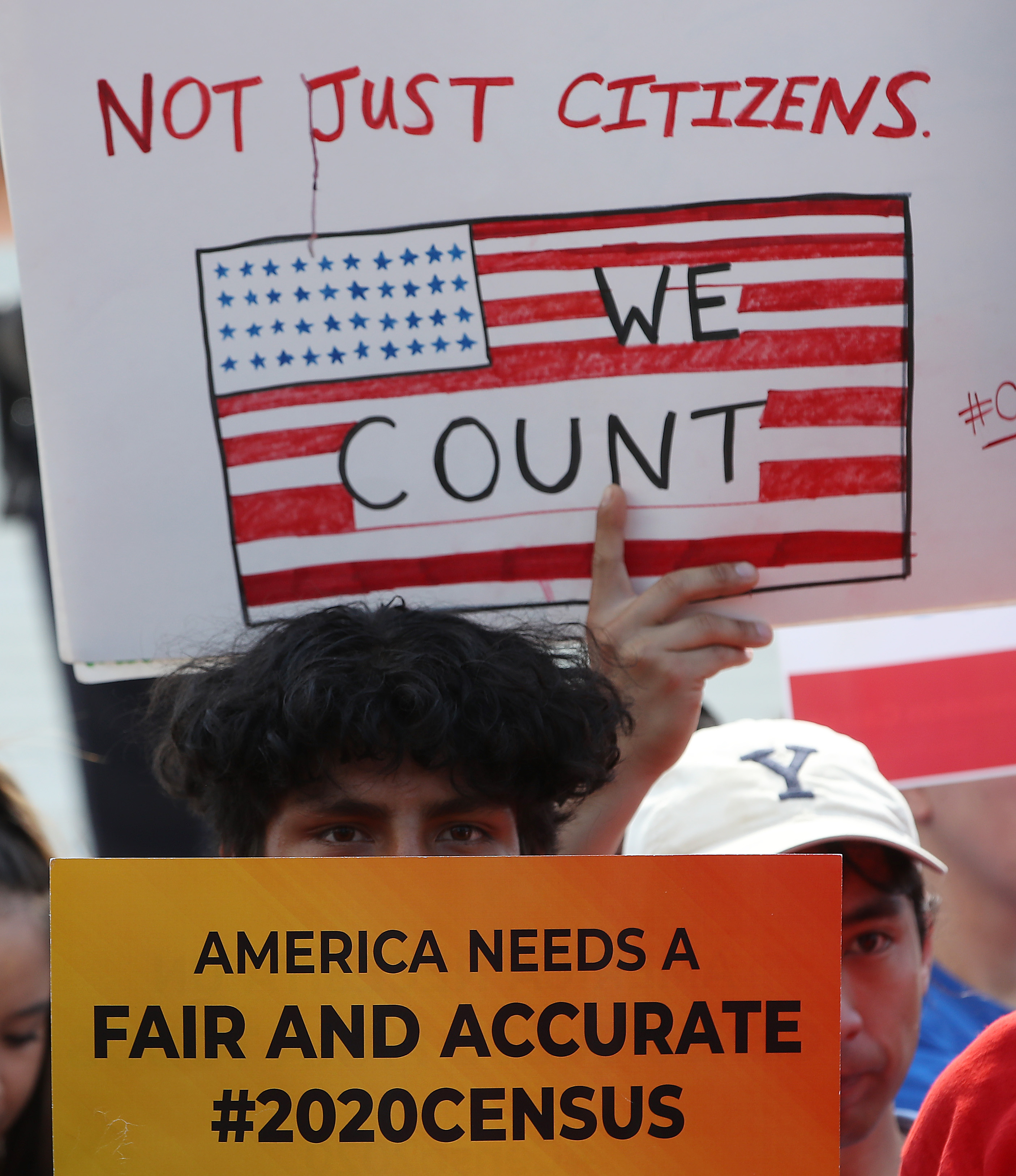In 2010, when the Census Bureau last collected data from folks who reside in the United States, there were reportedly at least 770,000 Latinos who were undercounted or unaccounted for entirely. With the coronavirus pandemic taking hold of our country and disrupting not only our individual everyday lives but in-person outreach plans as well, many fear the thought of what that number will look like this year.
The census is conducted every decade and is used to determine where resources (e.g., hundreds of billions of dollars and community initiatives) go. It takes about 10 minutes to complete & determines what the next 10 years will look like. Needless to say, it’s important that we’re all accounted for. You can fill out the census here.
We spoke with Juan Rosa, the Northeast Director of Civic Engagement at NALEO, who had his team attend to a very busy hotline from home. A survey conducted by NALEO shows that 75% of people are concerned the Trump Administration will use census data against immigrants or Latinos. “This needs to be addressed,” Rosa says. “The administration really tried to politicize something that should not be political…They’re sworn to protect. It’s not political, it’s essential to our democracy.”
We discuss that and more:
Why is it especially important for our community to fill out the Census this year?
The large amount of government resources that are being put into confronting COVID-19 highlights the need for the government to have proper data on who is in the country and where. It highlights the importance of being counted. Before COVID-19 hit, the two main reasons for Latinos to be counted were 1: It helps to shape political lines, from congressional… all the way to school boards. It’s important for Latinos to help shape how the district is formed. The other is money. Billions of dollars—for public schools, hospitals, medicare and infrastructure—goes into this. So, it’s for political power and to help guide federal investment.
With past instances of privacy failure, there is a very real concern that personal information will be divulged to ICE or government officials despite the fact that there is no citizenship question on the form. What do you say to those who are still uncertain about how safe filling out the census is?
As you know, the census data is protected by Title 13 – US Penal Code, which means census data cannot be shared with any other private agency. It really stays within the bureau and they only report statistics—they don’t name out people one by one. Title 13 wasn’t created out of benevolence, it was created as a response to a monstrosity. During WWII we put Japanese Americans in internment camps. The data that was used [for that] was census data—that’s what provoked Title 13. Government agencies have gone and said ‘we should go and be able to access this data,’ of course, but that law hasn’t been violated since WWII.
The census bureau will collect the info that is mandated in the constitution. The president mainly needs this in order to know how many seats are needed in the House of Representatives. There is no other reason/practical need for the president to get this data… It doesn’t ask about educational level, income, immigration at all [in comparison to other surveys like the American Community Survey]. From [ages] 3 to 117, everyone needs to participate in it. The constitutional need that the census meets is only the need to redraw congressional districts every 10 years—that then cycles down to the region and town level.
How would an accurate reflection of who makes up our communities by way of the census benefit Latino communities around the United States?
When we go defend Latino communities we can say there are ‘x’ number of people in this community so we need XYZ. Medicare, Medicaid, resources to empower Latinos to take office, etc.

How, if at all, has the coronavirus affected how we’re all participating in the census this year?
The coronavirus has affected [goal] timelines. We started in Alaska in January, then on March 12 in the rest of America. The idea was that every 2 weeks people would get a notice in the mail if they hadn’t responded online. The end of April would have been the end of the self-response period. Then, on May 13 we would start going to people’s houses. Now, census takers won’t be out in communities before May 28. It’s affected other areas too. For example, this last week of March was supposed to be the count of the homeless—service counts, too (soup kitchens, etc), to get a sense of who is going [for help] and then we’d actually go outdoors (parks, bridges), etc. and get those numbers and say ‘hey, you count in America.’ We also have groups (college students, for example) who are elsewhere right now. So, now we’re looking at how we prevent double counts, which is another hurdle.
People are frightful about payments, unemployment, getting sick, etc. But we did a lot of work from Fall to here to make sure people have information and have people who are equipped to speak on television and elsewhere about how the census benefits the community. Now we just have to migrate everything we were going to do in person and do it online.
Today is Census Day, but if someone happens to read this after April 1, can they still fill out the census?
The last day to be counted online, phone, mail or numerators (census takers, last resort) would have been July 31, it has now been extended to August 14. That’s a direct result of COVID-19.
Our priority is that on December 31 the president gets a report… It’s fluid, though. This is an ongoing conversation between the Census Bureau and public health agencies at the state and local level.







